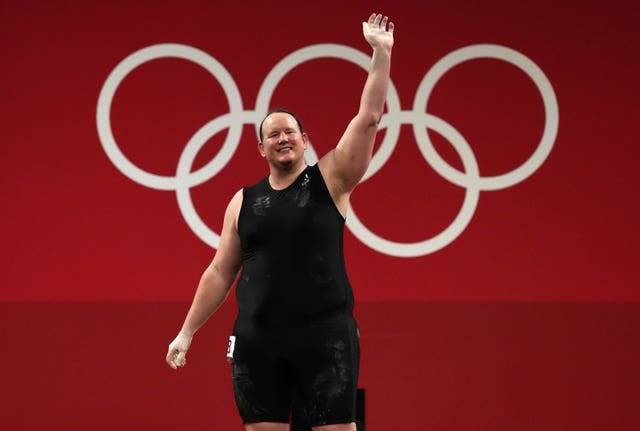Transgender weightlifter Laurel Hubbard exits Olympics without registering lift
Laurel Hubbard made history as the first openly transgender athlete to compete at the Olympic Games but her eagerly anticipated appearance fell flat as she exited the women’s +87kg weightlifting competition without registering a lift.
Unprecedented media interest had ensured the 43-year-old’s every move would be scrutinised since she was confirmed on the New Zealand team, and it was little surprise that she should take no questions in the press mixed zone afterwards.
Instead Hubbard made a statement, in which she said: “I know that from a sporting perspective I haven’t really hit the standards that I put upon myself and perhaps the standards that my country has expected of me.

“But one of the things for which I am profoundly grateful is that the supporters in New Zealand have given me so much and have been beyond astonishing.
“I know that my participation at these Games has not been entirely without controversy but they (the New Zealand Olympic Committee) have been just so wonderful and I’m so grateful to them.”
Media attending the Tokyo International Forum for the event were handed a 20-page guidebook prepared by three LGBT activist groups with the approval of the International Weightlifting Federation.
The guidelines urged media to ignore “misinformation” that transgender athletes have an “unfair advantage”, and asked them to “familiarise yourselves with this anti-LGBTQ groups and their campaigns targeting transgender access to sports”, including the UK-based Fair Play For Women.
Hubbard smiled through the introductory line-up but struggled on stage, failing on her initial snatch lift of 120kg, and again at 125kg. When she failed on her second attempt at the same weight, she shaped a heart with her hands before exiting the Games.
As the athlete herself had alluded to, Hubbard’s appearance in Tokyo had been the subject of much controversy.
She began transitioning in 2012 and met the IOC’s rules for transgender athletes, which allow them to compete in the category if they maintain a sufficiently low testosterone level for at least 12 months prior to competition.
